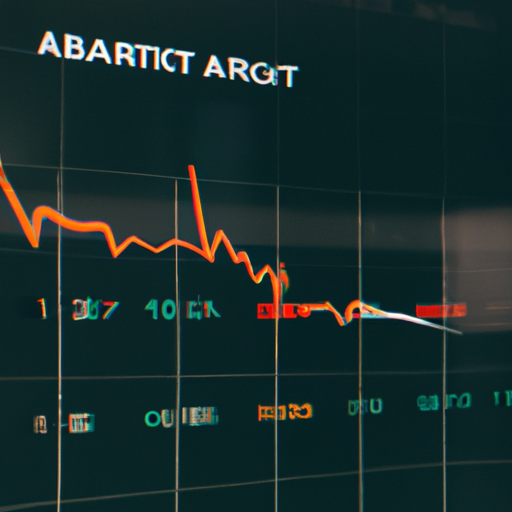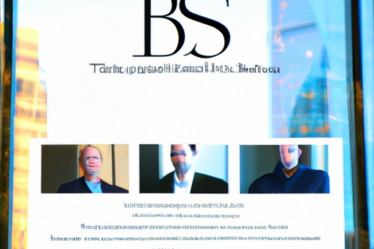
Impact of COVID-19 on the Baird/STR Hotel Stock Index in August
August saw a 3.6% decline in the Baird/STR Hotel Stock Index, reflecting the ongoing impact of the COVID-19 pandemic on the hospitality industry. This decline comes as no surprise, as the industry continues to grapple with travel restrictions, reduced demand, and economic uncertainty.
The Baird/STR Hotel Stock Index is a widely recognized benchmark that tracks the performance of hotel stocks. It provides valuable insights into the health of the hotel industry and serves as an indicator of investor sentiment. The decline in August is a clear indication that investors remain cautious about the recovery of the hotel sector.
One of the main factors contributing to the decline in the index is the ongoing travel restrictions imposed by governments around the world. Many countries have implemented strict measures to curb the spread of the virus, including mandatory quarantines and travel bans. These restrictions have severely impacted international travel, which is a significant source of revenue for hotels.
Furthermore, domestic travel has also been significantly affected. With many people still hesitant to travel due to health concerns and financial constraints, hotels are experiencing a sharp decline in bookings. This reduced demand has led to lower occupancy rates and decreased revenue for hotel companies, which in turn affects their stock performance.
Another factor impacting the hotel stock index is the economic uncertainty caused by the pandemic. The global economy has been severely affected by the crisis, with many businesses struggling to stay afloat. This uncertainty has made investors wary of investing in the hotel industry, as they are unsure of when and how the sector will recover.
However, it’s not all doom and gloom for the hotel industry. Some segments, such as limited-service hotels and extended-stay properties, have shown more resilience during these challenging times. These types of hotels cater to essential workers, long-term guests, and those seeking a safe and comfortable place to stay during the pandemic. As a result, they have experienced relatively better performance compared to full-service hotels.
Additionally, hotel companies have been implementing various strategies to adapt to the new normal and mitigate the impact of the pandemic. These strategies include enhanced cleaning protocols, contactless check-in and check-out processes, and flexible cancellation policies. By prioritizing the health and safety of guests, hotels are working towards rebuilding consumer confidence and attracting more bookings.
Looking ahead, the recovery of the hotel industry will largely depend on the successful containment of the virus and the widespread distribution of vaccines. As governments continue to roll out vaccination programs, there is hope that travel restrictions will gradually ease, and consumer confidence will improve. This, in turn, will lead to increased demand for hotel accommodations and a potential rebound in the hotel stock index.
In conclusion, the Baird/STR Hotel Stock Index experienced a 3.6% decline in August, reflecting the ongoing impact of the COVID-19 pandemic on the hotel industry. Travel restrictions, reduced demand, and economic uncertainty have all contributed to this decline. However, there are signs of resilience within the industry, and hotel companies are implementing strategies to adapt to the new normal. With the successful containment of the virus and the distribution of vaccines, there is hope for a recovery in the hotel sector in the future.
Analyzing the factors contributing to the 3.6% decline in the Baird/STR Hotel Stock Index

August saw a 3.6% decline in the Baird/STR Hotel Stock Index, leaving many investors and industry experts wondering what factors contributed to this decrease. In this article, we will analyze the various elements that played a role in this decline, providing a comprehensive understanding of the situation.
One of the primary factors that influenced the decline in the Baird/STR Hotel Stock Index was the ongoing COVID-19 pandemic. Despite hopes of a recovery, the Delta variant and its subsequent surge in cases created uncertainty and dampened travel demand. With travel restrictions and lockdowns being reinstated in many parts of the world, hotel occupancy rates plummeted, leading to a decrease in revenue and ultimately impacting the stock index.
Additionally, the labor shortage in the hospitality industry also played a significant role in the decline. Many hotels struggled to find and retain staff, resulting in reduced service levels and increased operational costs. This labor shortage not only affected the overall guest experience but also impacted the financial performance of hotels, leading to a decrease in investor confidence and a subsequent decline in the stock index.
Furthermore, the rise in inflation rates also contributed to the decline in the Baird/STR Hotel Stock Index. As inflation increased, the cost of goods and services rose, putting additional pressure on hotel operators. With higher expenses and lower revenue due to decreased occupancy rates, hotels faced a challenging financial landscape, which in turn affected the stock index.
Another factor that cannot be overlooked is the increase in competition within the hospitality industry. With the rise of alternative accommodation options such as vacation rentals and home-sharing platforms, hotels faced stiff competition for guests. This increased competition not only impacted occupancy rates but also put downward pressure on room rates, further impacting hotel revenues and ultimately affecting the stock index.
Moreover, the lack of business travel also played a role in the decline. With many companies continuing to implement remote work policies and virtual meetings, the demand for business travel remained low. This decrease in business travel had a significant impact on hotels, as corporate bookings typically contribute a substantial portion of their revenue. As a result, the decline in business travel further contributed to the overall decline in the stock index.
In conclusion, the 3.6% decline in the Baird/STR Hotel Stock Index in August can be attributed to a combination of factors. The ongoing COVID-19 pandemic, labor shortage, inflation rates, increased competition, and lack of business travel all played a role in this decline. While these factors may seem daunting, it is important to remember that the hospitality industry has shown resilience in the face of adversity before. As the world continues to navigate the challenges posed by the pandemic, it is crucial for hotels to adapt and innovate to regain investor confidence and drive the recovery of the stock index.
Exploring potential strategies for hotel investors amidst the declining Baird/STR Hotel Stock Index in August
August saw a 3.6% decline in the Baird/STR Hotel Stock Index, which has left many hotel investors concerned about the future of their investments. However, it is important to remember that the stock market is constantly fluctuating, and one month’s decline does not necessarily indicate a long-term trend. In this article, we will explore potential strategies for hotel investors to consider amidst the declining Baird/STR Hotel Stock Index in August.
Firstly, it is crucial for hotel investors to stay informed about the current market conditions. By keeping a close eye on the Baird/STR Hotel Stock Index and other relevant market indicators, investors can gain valuable insights into the overall health of the hotel industry. This information can help them make informed decisions about their investments and adjust their strategies accordingly.
One potential strategy for hotel investors in the face of a declining stock index is to diversify their portfolio. By spreading their investments across different sectors of the hotel industry, such as luxury hotels, budget accommodations, or boutique properties, investors can mitigate the risks associated with a single stock index. Diversification allows investors to take advantage of the potential growth in different segments of the market, even if one particular sector is experiencing a decline.
Another strategy for hotel investors is to focus on long-term growth rather than short-term fluctuations. While it can be tempting to panic and sell off stocks during a decline, it is important to remember that the stock market is cyclical. By maintaining a long-term perspective, investors can ride out temporary downturns and potentially benefit from future recoveries. This approach requires patience and a willingness to weather short-term losses for the potential of long-term gains.
Additionally, hotel investors may consider investing in real estate investment trusts (REITs) as an alternative to individual stocks. REITs are companies that own, operate, or finance income-generating real estate properties. By investing in a REIT focused on the hotel industry, investors can gain exposure to a diversified portfolio of hotel properties without the need to directly manage individual assets. This can provide a more stable and predictable income stream, even during periods of stock market volatility.
Furthermore, hotel investors should consider the impact of external factors on the hotel industry. For example, changes in travel patterns, economic conditions, or government regulations can significantly affect hotel stocks. By staying informed about these external factors and their potential impact on the industry, investors can make more informed decisions about their investments. This may involve conducting thorough research, consulting with industry experts, or attending conferences and seminars to stay up to date with the latest trends and developments.
In conclusion, while the decline in the Baird/STR Hotel Stock Index in August may be concerning for hotel investors, it is important to approach the situation with a level-headed and informed perspective. By staying informed about market conditions, diversifying their portfolio, focusing on long-term growth, considering alternative investment options such as REITs, and being aware of external factors, hotel investors can navigate the challenges posed by a declining stock index and potentially find opportunities for growth in the hotel industry.


